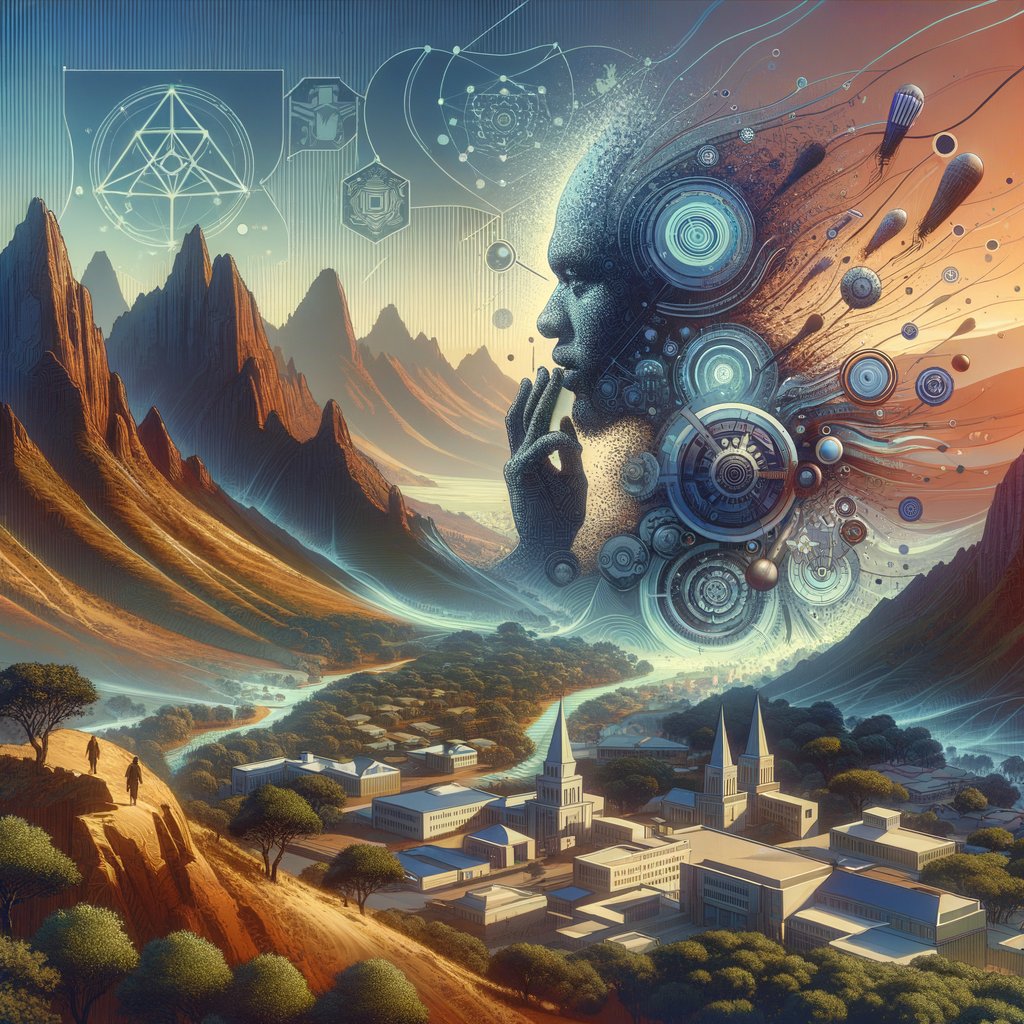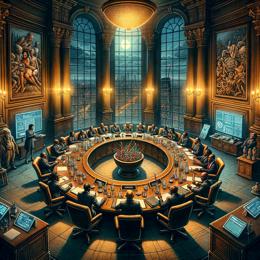Image created by AI
Jacob Zuma's Ongoing Defiance: A Strained Relationship with South Africa's Judiciary Amid Rising Tensions in KZN
The political landscape of South Africa remains tumultuous as former President Jacob Zuma continues to challenge the judicial system amidst rising political tensions in KwaZulu-Natal (KZN). At 82, Zuma’s maneuvers suggest a strategic defiance aimed at exploiting vulnerabilities within the Government of National Unity (GNU) and stirring regional unrest.
Jacob Zuma, alongside his ally John Hlophe, who recently faced a notable defeat in the Western Cape High Court, seems relentless. Although temporarily stepping back from the frontline, the background activity suggests they are far from conceding defeat. Hlophe, despite the court ruling, maintains his presence in Parliament, which has stirred significant controversy among opposition parties including the Democratic Alliance (DA) and Economic Freedom Fighters (EFF).
Zuma’s affiliation with Umkhonto we Sizwe (MK), once the armed wing of the African National Congress during apartheid, has now transformed under his influence into a symbol of resistance against what he perceives as a biased judiciary. This transformation is endorsed by MK’s chief whip, Jimmy Manyi, indicating a broad network of support for Zuma's cause within KZN.
The former president has publicly criticized South African judges and expressed his dissatisfaction with the judiciary, including Constitutional Court justices. His critique is rooted in numerous legal setbacks, including protracted legal battles and a brief imprisonment related to corruption charges. Notably, Zuma’s comments after a mandatory appearance at the Estcourt Correctional Centre highlight his disdain for judicial decisions contrary to his interests.
A recent assembly at Moses Mabhida Stadium in KZN turned heads as it appeared to showcase a militarized demonstration reminiscent of Soviet-era parades. Unconfirmed reports suggested that unlicensed firearms and combat uniforms were displayed, signaling a possible militarization of MK under Zuma’s leadership. This development points to a strategic realignment within Zuma’s faction, potentially backed by foreign alliances, as hinted by historical ties to Russian interests revealed in the past through investigative reports like the Browse Mole document.
The presence of controversial figures such as former Eskom CEO Brian Molefe and others implicated in South Africa’s state capture scandals at Zuma’s side underscores a consolidation of forces possibly seeking refuge from legal repercussions under his leadership. This assembly of politically compromised allies, alongside Zuma's ongoing rhetoric against the judiciary, raises questions about the future trajectory of political stability and governance in South Africa, particularly as the country approaches local elections in 2026.
In summary, Jacob Zuma’s enduring influence within certain factions of South Africa’s political landscape, exemplified by his strategic use of MK and defiance against judicial scrutiny, continues to contribute to the complexity of the nation’s democratic governance. With an eye towards future political contests, both the government and citizens may need to brace for further escalations in Zuma’s campaign against perceived judicial overreach.










